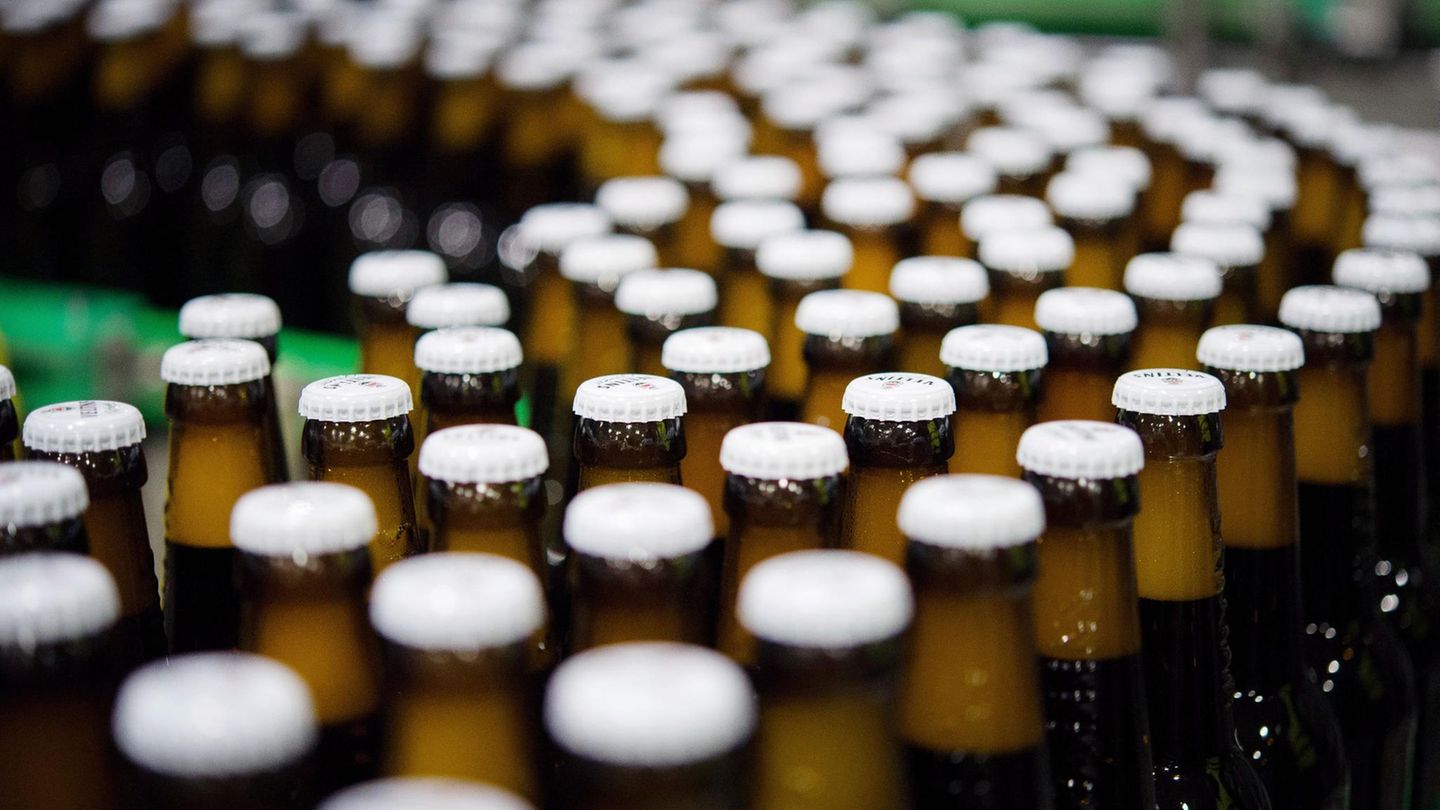The tractors are rolling in the fields again. After angry demonstrations in the winter, the farmers are demanding that politicians deliver the promised relief this summer. And what is the market situation like?
The grain harvest is approaching in the fields, and many farmers are hoping for more sunshine. In the political arena, however, the industry is now demanding relief that the federal government promised after the major tractor protests at the beginning of the year – and that this will last until the summer.
“The discontent has not disappeared,” said farmers’ president Joachim Rukwied to the German Press Agency before the German Farmers’ Day in Cottbus. “We need a reorientation of agricultural policy, and if that does not happen, dissatisfaction will increase.” The market situation with falling prices remains tense from the industry’s perspective.
“At the moment, food prices are having a dampening effect on inflation,” said Rukwied. “But that can change quickly. We have the war in Ukraine. We have seen how fragile supply chains are.” The situation for companies is still difficult. “In important areas, the price level is much lower than it was a year and a half ago.” At the same time, costs for fertilizers, crop protection and energy are still high, although no longer at such extreme peaks.
Warning against “breach of promise”
At the Farmers’ Day this Wednesday and Thursday in Cottbus, the focus will be primarily on the political framework. This concerns relief that the traffic light coalition has promised the angry industry as compensation for the reduction of long-standing agricultural diesel discounts. “We have been able to bring the importance of food security and competitiveness for a sustainable agriculture into the focus of society,” said Rukwied about the effect of the weeks-long farmers’ protests a few months ago.
Fewer bureaucratic requirements are now expected. And easier access for farms to offset results from good and bad years when paying taxes. “If profit smoothing is not implemented, farmers will say: This is a breach of promise. Then politicians will lose their trust, which is already low,” warned Rukwied.
“The coalition partners need to know that.” Expectations are therefore likely to be high when Agriculture Minister Cem Özdemir (Greens) comes to Cottbus on Thursday. He wants more from Özdemir than has been heard recently – “actually only what is not possible in this coalition,” said Brandenburg Farmers’ President Henrik Wendorff.
Open financing for restructuring of animal husbandry
The association is also calling for course corrections – from fertilizer regulations to reform of the animal protection law. “If the federal government implements this, it will turn off the lights for pig farmers,” warned Rukwied. Planned requirements lack a practical basis, for example when it comes to trimming piglets’ curly tails or dehorning calves, and go far beyond EU law. Rukwied is running for re-election as president in Cottbus for another four years. The 62-year-old has been at the head of the farmers’ association since 2012.
Another focus is on long-term funding for a restructuring of animal husbandry to higher standards so that farms are not left with the additional costs alone. Özdemir took up the issue directly when the debate gained momentum amid the protests – but no decisions followed. “The animal farmers, especially the pig farmers, are totally disappointed,” said Rukwied. “The ball was on the penalty spot and the goalkeeper was leaning against the post. But nothing has really happened so far. The previous government could have scored.”
As a boost, the traffic light coalition has initially reserved one billion euros for pig farmers, but this is not enough to restructure the entire animal husbandry system. “We can imagine raising the VAT on animal products by two to three points to finance this,” said Rukwied, referring to the existing reduced rate of 7 percent. “But not to the full rate of 19 percent. That would be a no-go, because it would in principle no longer allow financially disadvantaged families to buy meat and sausage products.”
Hope for sun
Regarding the imminent start of this year’s harvest, Rukwied said: “We are now counting on consistent weather and sunny days so that the grains of cereals and rapeseed can develop well. This will also produce good quality.” Overall, there has been enough rainfall so far. “There is some massive flood damage at farms in Bavaria, Baden-Württemberg and Saarland.” The association plans to present a forecast for the 2024 harvest at the start on July 1.
At the traditional end of the asparagus season on this Monday, the industry’s assessments are fairly satisfactory. Cold and wet weather did put pressure on production, but this ensured relatively stable prices, according to reports from growing regions. Assessments ranged from “satisfactory” in Schleswig-Holstein to “okay” in Thuringia to cautiously satisfied in Lower Saxony. After June 24, St. John’s Day, shoots are generally no longer picked.
With regard to consumer prices, Rukwied said: “If a price promotion is run occasionally, that’s just part of what supermarkets do.” Overall, there needs to be a stronger “network partnership” across the entire chain, right up to the retail trade, which then advertises the products at a higher price and doesn’t just put them in a corner on the shelf.
“In the end, of course, the farmer must also receive significantly more.” For the 2023/24 financial year, which runs until the end of June, sharp declines in profits are to be expected in many production sectors. “Unfortunately, this is no longer just a fear.” In the previous year, the results, which still have to be used to pay for investments, had risen to a record level.
Source: Stern




